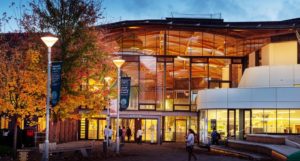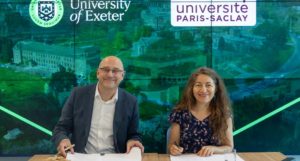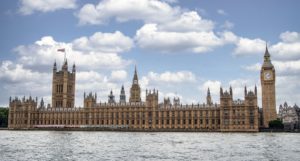Penryn Perspectives: Emma Clark
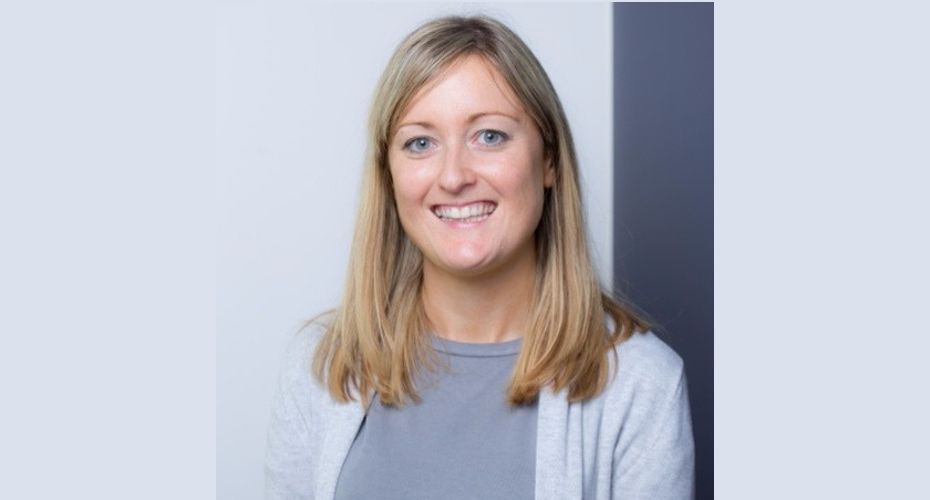
The Cornwall I returned to is nothing like the one I left
Emma Clark
Emma Clark is the Head of External Engagement for Cornwall at the University of Exeter. Her role is to help raise awareness and reputation of the Cornwall campuses, whether thinking about attracting potential students to the region, encouraging local students into HE, or showcasing the global impact of work done at the University in Cornwall. Before this she worked with the University’s Global Advancement team in alumni and fundraising communications, and prior to joining Exeter spent 15 years in corporate marketing, working in the automotive, media, and tech industries.
In this, the 7th in the Penryn Perspectives series, Emma reveals how she hated Cornwall as a teenager – but now …
“It’s really down to my grandad that I ended up both working in education and living in Cornwall. His is the quintessential story about the power of education to transform lives. Born into poverty but incredibly clever, he managed to get scholarships to Kings College London to study Chemistry, both undergraduate and PhD.
“After graduation he worked in the pharmaceutical industry; as a more junior scientist being involved in the development of M&B 693 which you can see in the Science Museum, working for the government during the war, then part of BIOS – the British Intelligence Objectives Subcommittee – visiting scientists and sites in post-war Germany, and finally becoming director of a drug company which has since been bought out a number of times and is now part of Sanofi Aventis.
“All of this set up, first my dad and his brothers, and later me and my cousins, to take the path of university and good jobs. In the space of one generation, everything flipped – all thanks to those scholarships!
“Somewhere along the line my grandad also met a Cornish farmer and started taking family holidays to the tiny village of Mabe (coincidently this farm is almost directly across the road from the Penryn Campus where I’m now based). For years my dad spent summer holidays in Cornwall and fell in love with the place. Fast forward a decade or two and he decided he’d had enough of being a chemical scientist and was instead going to move to Cornwall and become a science teacher. And that’s how I ended up being born down here.
“In all honesty I hated Cornwall growing up. I thought it was backward, there were no job prospects, there was nothing to do as a young person, people didn’t travel or really do anything as far as I was concerned. So at 18, off I went to university in London determined never to return… Right now if I was to go up to the roof of the Daphne Du Maurier building I could see the house I lived in as a teenager… so that worked out well!
“What happened?! Not long before I left, Cornwall was granted Objective One status. This kickstarted huge inward investment and the transformation over the past 20-plus years has been incredible. It’s the reason the University of Exeter exists in Cornwall and the reason I can have the job I do – opportunities like this were unheard of in the 1990s.
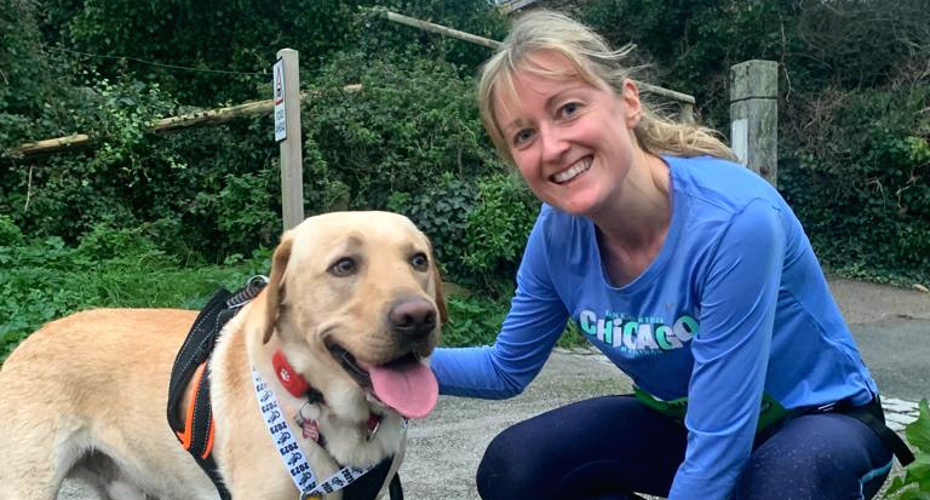
“It meant that the Cornwall I returned to was nothing like the one I left. That’s not to say everything’s perfect, it’s still one of the poorest areas in the UK, but there are elements of life down here I find unrecognisable from before (in a good way!).
“It’s why I was keen to take my current role and move from the Streatham campus in Exeter. The University is crucial for the Duchy, it brings jobs, it brings investment, it brings support for local business, it brings educational opportunities, and it makes people think about other options in life. There are nearly 700 University of Exeter staff in Cornwall, plus more at our partner, Falmouth University, and just on our side we spend £12-13 million with companies in Cornwall and the Isles of Scilly each year. It’s really important that it continues to develop and support industry and communities in Cornwall. Particularly now that Brexit means the end of all that European investment.
“I now feel really lucky to be down here. Not only do I live five minutes from the sea but my job is incredibly diverse and exciting. We have some of the world’s best scientists on our campus, having a massive impact on global issues like reducing fossil fuel use and protecting endangered environments. Not bad for what I once thought of as a rural backwater!”

